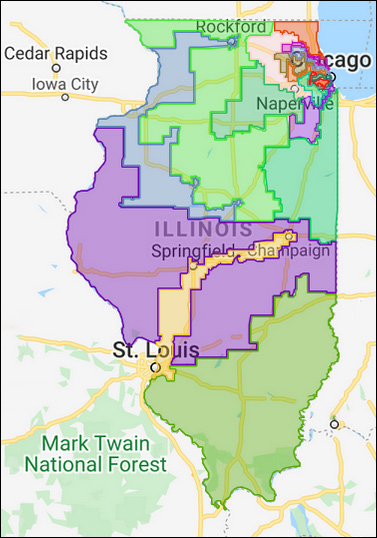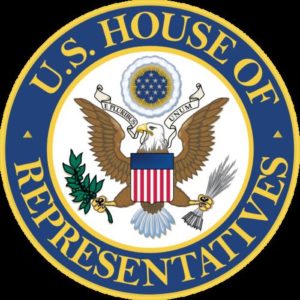By Jim Ellis — June 28, 2022
Senate
Illinois: Final Pre-Primary Poll — The Illinois primary is today, and the Ogden & Fry research firm tested the GOP field (June 24; 518 likely Illinois Republican primary voters). The results find Kathy Salvi, whose husband, Al Salvi, was the 1996 US Senate nominee, and who at the time was a conservative radio talk show host. She leads the field of seven candidates but with only 20 percent preference. Tonight’s winner will face Sen. Tammy Duckworth (D) in the Autumn, and begins this race as one of the bigger Senate underdogs in the country.House
IL-6 and 15: Two Pairings Decided Today — The Illinois primary also features two sets of incumbent House members battling for two seats. In the Chicago suburbs, Democratic Reps. Sean Casten (D-Downers Grove) and Marie Newman (D-La Grange) square off for the state’s new 6th District. Downstate, Republican members Rodney Davis (R-Taylorville) and Mary Miller (R-Oakland) are vying for the new safely Republican 15th CD. The 6th is the more competitive of the two seats for the general election. Both primaries are viewed as tight contests.
NE-1: Special Election Today — Two state senators are competing for the seat, and regardless of what happens tonight both will advance to the regular general election for the succeeding term in November. Both Sens. Mike Flood (R-Norfolk) and Patty Pansing Brooks (D-Lincoln) were nominated by the party leaders for the special election and the voters for the fall campaign.
The seat is rated R+17 and is 89 percent intact when overlaid with the current district. Former President Trump carried the seat 56-41 percent in 2020. Therefore, the stats make Sen. Flood the favorite to win tonight and in November. The competition from Sen. Brooks, however, will likely make this race closer than in the recent past.
RI-2: Surprising Poll Results — Though Rhode Island’s open 2nd District is rated as heavily Democratic — D+17 according to the FiveThirtyEight data organization — a new Suffolk University poll (June 19-22; 423 likely Rhode Island general election voters; live interview) finds former Cranston mayor and 2014 and 2018 Republican gubernatorial nominee Allen Fung (R) taking a 45-38 percent lead over state Treasurer Seth Magaziner who is the Democratic primary polling leader. If this trend continues, we will see a surprisingly competitive race come forth in the New England region.
Governor
Illinois: Governor’s Race Could Be More Competitive — The Ogden & Fry firm also tested the Republican governor’s field (see Illinois Senate above). The GOP contest looks to be a competitive battle among state Sen. Darren Bailey (R-Louisville) and venture capitalist Jesse Sullivan and ex-Aurora Mayor Richard Irvin. Gov. J. B. Pritzker (D) is the clear favorite for the November election, but this race appears to be a bit more competitive than the companion US Senate contest.
Rhode Island: Gov. McKee Wins Party Endorsement — Gov. Dan McKee won a solid 56 percent endorsement vote at the Rhode Island Democratic convention, and he will be the official party supported candidate for the Sept. 13 primary. The Ocean State’s Secretary of State, Nellie Gorbea, however, leads in a new Democratic poll (Suffolk University; 353 likely Rhode Island Democratic primary voters; live interview), 24-20 percent.






